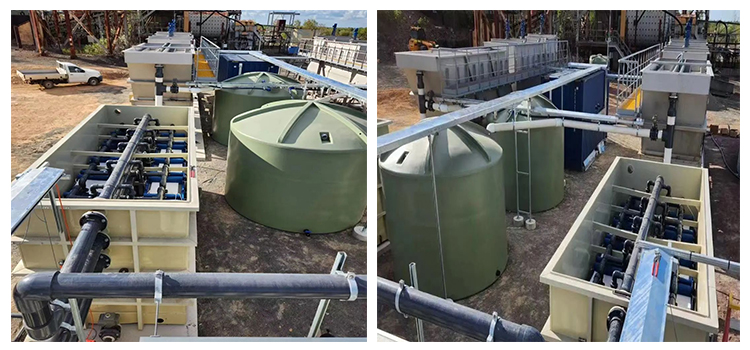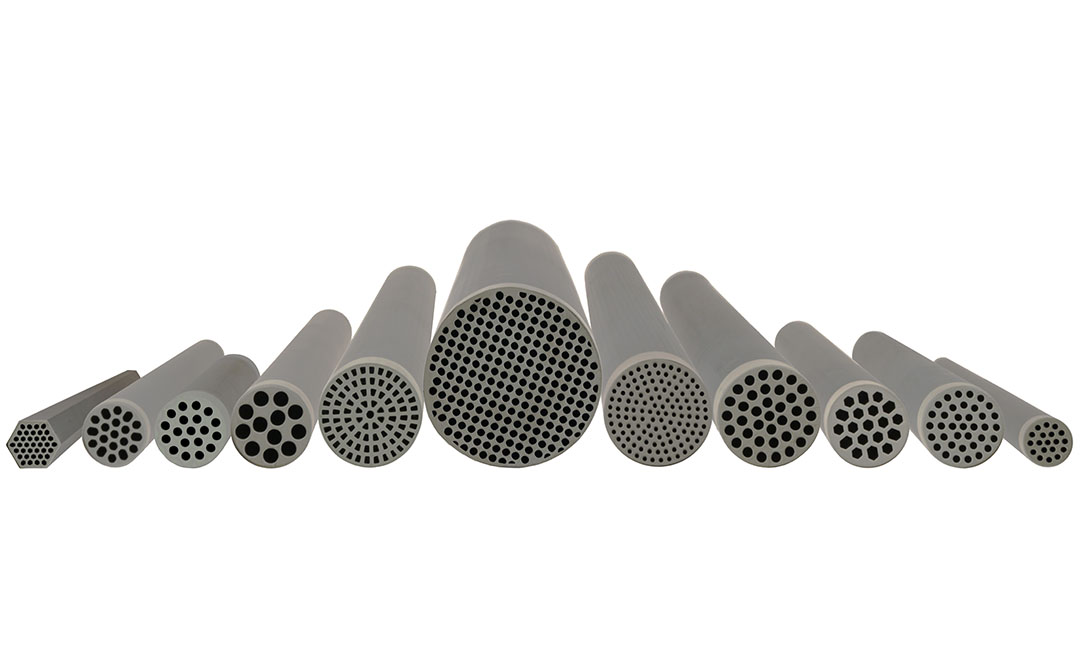Benefits of Using SiC Membrane Filtration Systems
Silicon carbide (SiC) membrane filtration systems have gained significant attention in recent years due to their advanced capabilities and numerous benefits. These systems offer a more efficient and cost-effective solution for various filtration applications, making them an attractive option for industries looking to improve their processes. In this article, we will explore the benefits of using SiC membrane filtration systems and how they can enhance modern filtration practices.
One of the key advantages of SiC membrane filtration systems is their exceptional durability and longevity. SiC membranes are known for their high mechanical strength and resistance to harsh chemicals and extreme temperatures, making them ideal for demanding filtration processes. This durability ensures that the membranes have a longer lifespan compared to traditional filtration systems, reducing maintenance costs and downtime for businesses.
In addition to their durability, SiC membrane filtration systems offer superior filtration performance. The unique structure of SiC membranes allows for precise control over pore size and distribution, resulting in efficient removal of contaminants and particles from the feed stream. This high filtration efficiency leads to improved product quality and reduced waste generation, making SiC membranes a sustainable choice for industries seeking to minimize their environmental impact.

Furthermore, SiC membrane filtration systems are highly versatile and can be customized to meet specific filtration requirements. Whether it is for water treatment, wastewater recycling, or gas separation, SiC membranes can be tailored to suit different applications and operating conditions. This flexibility allows businesses to optimize their filtration processes and achieve better results in terms of product quality and efficiency.
Another significant benefit of using SiC membrane filtration systems is their energy efficiency. SiC membranes require lower operating pressures compared to conventional filtration systems, resulting in reduced energy consumption and operating costs. This energy efficiency not only helps businesses save money but also contributes to a more sustainable and environmentally friendly operation.

Moreover, SiC membrane filtration systems offer improved fouling resistance, thanks to their smooth surface and high chemical inertness. This resistance to fouling ensures stable and consistent filtration performance over time, reducing the need for frequent cleaning and maintenance. As a result, businesses can enjoy uninterrupted operation and increased productivity with SiC membrane filtration systems.
In conclusion, SiC membrane filtration systems offer a wide range of benefits that make them an attractive choice for modern filtration applications. From their exceptional durability and filtration performance to their energy efficiency and fouling resistance, SiC membranes provide businesses with a reliable and cost-effective solution for their filtration needs. By incorporating SiC membrane filtration systems into their processes, industries can enhance their operations, improve product quality, and reduce environmental impact. As technology continues to advance, SiC membrane filtration systems are poised to play a crucial role in shaping the future of filtration practices.
Applications of Advanced SiC Membrane Filtration Technology
Silicon carbide (SiC) membrane filtration systems have emerged as a cutting-edge technology in the field of water and wastewater treatment. These advanced membranes offer superior performance compared to traditional polymeric membranes, making them ideal for a wide range of applications in various industries. In this article, we will explore the applications of advanced SiC membrane filtration technology and the benefits it brings to modern use.
One of the key advantages of SiC membrane filtration systems is their exceptional chemical and thermal stability. This makes them highly resistant to harsh chemicals and high temperatures, allowing for efficient filtration of challenging feed streams. As a result, SiC membranes are well-suited for applications in industries such as pharmaceuticals, petrochemicals, and food and beverage production, where the quality of water is critical for product quality and safety.
In the pharmaceutical industry, SiC membrane filtration systems are used for the purification of process water, removal of impurities from drug formulations, and recovery of valuable products from waste streams. The high chemical resistance of SiC membranes ensures that the purity of the final product is maintained, meeting stringent regulatory requirements. Additionally, the robust nature of SiC membranes allows for repeated cleaning and sterilization cycles, prolonging their lifespan and reducing maintenance costs.
In the petrochemical industry, SiC membrane filtration systems play a crucial role in the treatment of wastewater generated during the production process. These membranes effectively remove oil, grease, and other contaminants from the wastewater, enabling compliance with environmental regulations and reducing the impact on the surrounding ecosystem. The thermal stability of SiC membranes also makes them suitable for treating high-temperature wastewater streams, further enhancing their versatility in petrochemical applications.
In the food and beverage industry, SiC membrane filtration systems are utilized for the clarification and sterilization of beverages, separation of proteins and fats from dairy products, and recovery of valuable by-products from food processing waste. The exceptional fouling resistance of SiC membranes ensures consistent performance over time, reducing downtime and increasing productivity. Moreover, the high flux rates achieved with SiC membranes result in energy savings and lower operating costs for food and beverage manufacturers.
Another key application of advanced SiC membrane filtration technology is in the treatment of industrial wastewater and municipal sewage. SiC membranes are capable of removing a wide range of contaminants, including suspended solids, bacteria, viruses, and heavy metals, from wastewater streams. This not only helps protect the environment but also allows for the reuse of treated water in various industrial processes, reducing the demand for freshwater resources and promoting sustainability.
In conclusion, advanced SiC membrane filtration systems offer a multitude of benefits for modern applications across different industries. Their superior chemical and thermal stability, high fouling resistance, and excellent filtration performance make them a preferred choice for water and wastewater treatment. As the demand for clean water continues to grow, SiC membranes will play an increasingly important role in ensuring the availability of safe and high-quality water for various industrial processes.
Future Developments in SiC Membrane Filtration Systems
Silicon carbide (SiC) membrane filtration systems have been gaining popularity in recent years due to their superior performance and durability compared to traditional membrane materials. These advanced systems offer a range of benefits, including higher flux rates, improved chemical resistance, and longer lifespan, making them ideal for a variety of applications in industries such as water treatment, pharmaceuticals, and food and beverage.
One of the key advantages of SiC membrane filtration systems is their high flux rates, which allow for faster and more efficient filtration processes. This is due to the unique structure of SiC membranes, which have a high porosity and a narrow pore size distribution, allowing for the efficient removal of particles and contaminants from the feed solution. As a result, SiC membranes can achieve higher permeate flow rates compared to other membrane materials, making them a cost-effective solution for large-scale filtration applications.
In addition to their high flux rates, SiC membrane filtration systems also offer improved chemical resistance, making them suitable for use in harsh operating conditions. SiC membranes are highly resistant to a wide range of chemicals, including acids, bases, and organic solvents, making them ideal for applications where traditional membrane materials may degrade or fail. This chemical resistance allows for the use of SiC membranes in a variety of industries, including the pharmaceutical and chemical industries, where the filtration of corrosive or reactive substances is required.
Furthermore, SiC membrane filtration systems have a longer lifespan compared to traditional membrane materials, reducing the need for frequent replacement and maintenance. The durability of SiC membranes is due to their high mechanical strength and thermal stability, which allow them to withstand high operating pressures and temperatures without degrading or losing performance. This extended lifespan not only reduces operating costs but also minimizes downtime and maintenance requirements, making SiC membrane filtration systems a reliable and cost-effective solution for long-term use.
As the demand for advanced filtration technologies continues to grow, researchers and manufacturers are exploring new developments in SiC membrane filtration systems to further enhance their performance and capabilities. One area of focus is the development of asymmetric SiC membranes, which have a graded pore structure that allows for improved particle retention and permeate flow rates. These asymmetric membranes offer a higher selectivity and efficiency compared to traditional SiC membranes, making them suitable for applications where precise separation is required.
Another area of research is the integration of nanomaterials into SiC membranes to enhance their filtration properties. By incorporating nanoparticles such as graphene or carbon nanotubes into the membrane structure, researchers can improve the mechanical strength, chemical resistance, and selectivity of SiC membranes, leading to higher performance and efficiency. These nanocomposite membranes show great promise for a wide range of applications, including water treatment, desalination, and gas separation.
In conclusion, SiC membrane filtration systems offer a range of benefits that make them an attractive option for modern filtration applications. With their high flux rates, improved chemical resistance, and longer lifespan, SiC membranes provide a cost-effective and reliable solution for a variety of industries. As researchers continue to explore new developments in SiC membrane technology, we can expect to see even greater advancements in the performance and capabilities of these advanced filtration systems, further expanding their potential for use in the future.

